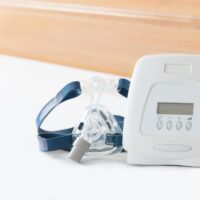CPAP Machine Recall: What You Need to Know

Philips Respironics was recently admonished by the U.S. Food and Drug Administration (FDA) for administering a half-hearted recall of hundreds of thousands of units of dangerously defective medical equipment. The FDA has called for Philips to re-do its recall and properly notify all medical offices and other device users of the hazards posed by the continuous positive airway pressure (CPAP) machines and other devices covered by the recall. Continue reading to learn about the FDA’s order to Philips and the reasons behind the original, failed recall issued by Philips regarding its defective medical devices. If you’ve been hurt by a defective medical device, call a seasoned California medical device defect attorney at the James Morris Law Firm P.C. for help with a products liability claim.
Philips CPAP, BiPAP, and Ventilators Pose Substantial Risk of Harm to Users
In June 2021, Philips Respironics issued a recall covering a number of dangerously defective CPAP machines, ventilators, and bilevel positive airway pressure (BiPAP) machines. The recall was based on a substantial risk of harm to patients utilizing the devices created by defects in the design and manufacture of the devices.
According to the FDA, the devices were manufactured with a polyester-based polyurethane foam meant to dampen sound and vibration. The foam is at risk of breaking down over time, however. Should the foam break down, small pieces of foam or other invisible chemicals may be breathed in or swallowed by patients hooked up to the machines. Inhaling these dangerous chemicals or materials can cause serious injury to patients, up to and including permanent impairments and possible death. The material breakdown is even more likely should the machines be stored in hot or humid settings, or by using certain ozone or ultraviolet (UV) cleaning methods. Patients, consumers, medical offices, and other users and suppliers of the medical devices were unaware of these defects and the heightened risks posed by certain environments and cleaning methods.
The Philips recall covers the following devices made between 2009 and April 2021:
- A-Series BiPAP A30
- A-Series BiPAP A40 (ventilator)
- A-Series BiPAP Hybrid A30
- A-Series BiPAP V30 Auto (ventilator)
- C-Series ASV (ventilator)
- C-Series S/T and AVAPS
- DreamStation
- DreamStation ASV
- DreamStation Go
- DreamStation ST, AVAPS
- Dorma 400
- Dorma 500
- E30
- Garbin Plus, Aeris, LifeVent (ventilator)
- OmniLab Advanced+
- REMstar SE Auto
- SystemOne ASV4
- SystemOne (Q-Series)
- Trilogy 100 (ventilator)
- Trilogy 200 (ventilator)
Philips Fails in Issuing Recall, Ordered by FDA to Do Better
Following Philips’ original recall, the FDA communicated with Philips multiple times about the dangers posed by the products and the effectiveness of the company’s communications. The FDA “expressed concern that it is likely a significant portion of patients and consumers using the recalled products are unaware of the health risks presented by those products.”
On March 10, 2022, the FDA issued a notification order to Philips requiring it to properly notify patients and other device suppliers and users of the recall and the dangerous defects in its medical equipment. According to the director of the FDA’s Center for Devices and Radiological Health, the FDA had received numerous complaints “expressed by patients and durable medical equipment suppliers who are unaware of the recall and have received insufficient information on their next steps regarding the recall process.” In response, the FDA ordered Philips to “notify all device users, durable medical equipment (DME) suppliers, distributors, retailers, and health care providers who prescribe the products about the recall and the health risks posed by the foam used in the recalled products.” According to the FDA, the covered devices pose an “unreasonable risk of substantial harm to the public health.”
Philips has further been ordered to inform patients about the risk of ozone cleaners on the recalled devices on their webpage promoting the devices. Philips is meant to provide updates regarding the recall to patients who register their devices on the website as well as suppliers of the products, including the expected time it will take to receive a replacement product.
Reach out to James Morris Law Firm P.C. for Help With a Defective Products Claim in California or Nationwide
If you have been injured in Southern California or beyond by a defective medical device or another consumer product, reach out to a dedicated product defect attorney today at the James Morris Law Firm P.C. . We can help you gain the compensation you deserve if you have been seriously injured by a recalled medical device or other defective product.
